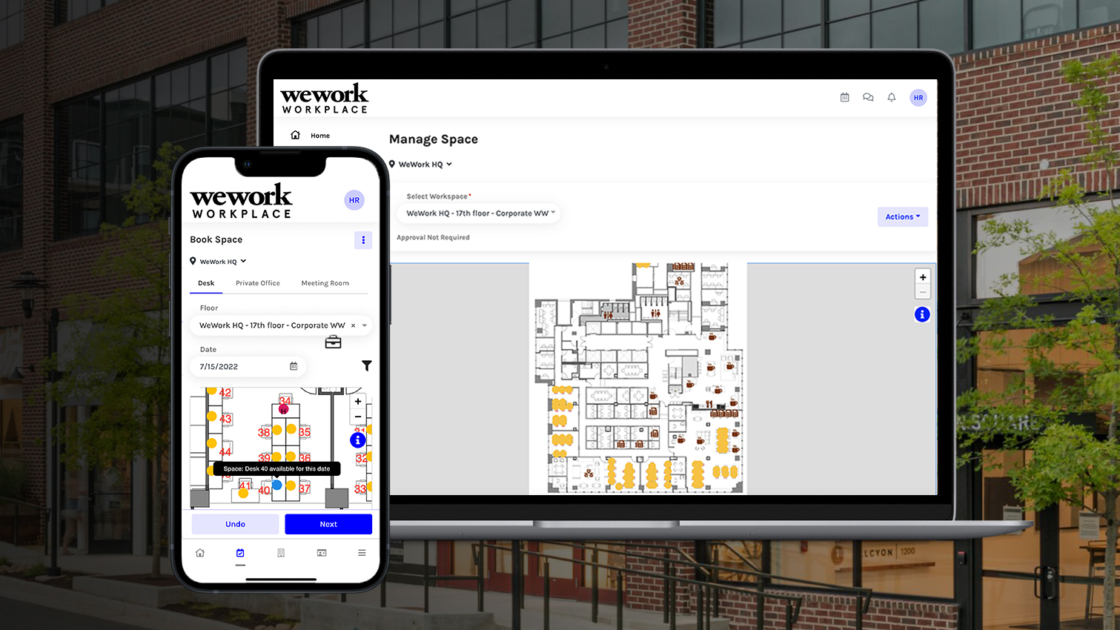
Revolutionizing Workspaces: The Role of Flexible Workspace Management Platforms
The way we work is undergoing a profound transformation, and at the forefront of this change are Flexible Workspace Management Platforms. These platforms are redefining how businesses manage their workspaces, providing flexibility, efficiency, and a seamless experience for both employers and employees.
Flexibility in Workspace Configuration
Flexible Workspace Management Platforms offer a dynamic approach to workspace configuration. Whether it’s hot desking, dedicated desks, or meeting rooms, these platforms enable businesses to adapt their office spaces based on the specific needs of the day. This flexibility not only optimizes space utilization but also enhances the overall agility of the workplace.
Streamlining Reservations and Bookings
One of the key features of these platforms is the ability to streamline the reservation and booking processes. Employees can easily book workspaces, meeting rooms, or amenities through a user-friendly interface. This not only saves time but also ensures that the workspace is utilized efficiently, reducing the likelihood of unoccupied spaces.
Enhanced Employee Experience
Flexible Workspace Management Platforms prioritize the employee experience. With features such as mobile booking apps, personalized workspace preferences, and seamless check-in processes, these platforms contribute to a positive and empowering work environment. Employees have the flexibility to choose where and how they work, fostering a culture of autonomy and well-being.
Optimizing Resource Utilization
Efficient resource utilization is a critical aspect of workspace management. These platforms provide real-time data and analytics on workspace usage, helping businesses make informed decisions about resource allocation. By understanding which areas are frequently used and which are underutilized, organizations can optimize their workspace and reduce unnecessary costs.
Linking the Future: Ninth World Hub’s Flexible Workspace Management Platforms
Ninth World Hub stands as a pioneer in the realm of Flexible Workspace Management Platforms. The platform seamlessly integrates advanced features to facilitate efficient workspace management. Explore the future of flexible workspaces and management at Ninth World Hub.
Integrating Technology for Seamless Operations
Technology integration is a hallmark of Flexible Workspace Management Platforms. From digital check-ins to IoT-enabled space monitoring, these platforms leverage technology to create a seamless and efficient workspace experience. This integration not only enhances operational efficiency but also aligns with the expectations of a tech-savvy workforce.
Supporting Hybrid Work Models
The rise of remote and hybrid work models is a defining trend in the modern workforce. Flexible Workspace Management Platforms play a crucial role in supporting these models by providing tools for managing remote and in-office workspaces. This adaptability ensures that businesses can cater to the diverse needs of their workforce, promoting a balanced work-life integration.
Ensuring Compliance and Safety
In the post-pandemic era, workplace safety and compliance have become paramount. Flexible Workspace Management Platforms incorporate features such as touchless access control, health and safety checklists, and occupancy monitoring to ensure a secure and compliant workspace. This focus on safety contributes to the overall well-being and confidence of employees returning to the office.
Cost-Efficiency and Scalability
For businesses, managing costs while maintaining scalability is a constant challenge. Flexible Workspace Management Platforms address this challenge by offering cost-effective solutions. Businesses can scale their workspace needs up or down based on demand, ensuring that they only pay for the resources they use. This cost-efficiency is particularly beneficial for startups and growing enterprises.
Conclusion
In conclusion, Flexible Workspace Management Platforms are reshaping the landscape of workspaces, aligning with the evolving needs of modern businesses and their employees. The emphasis on flexibility, technology integration, employee experience, and cost-efficiency positions these platforms as key enablers of the future of work. As we navigate a dynamic and ever-changing work environment, the role of Flexible Workspace Management Platforms will continue to be instrumental in creating adaptable, efficient, and employee-centric workspaces.
